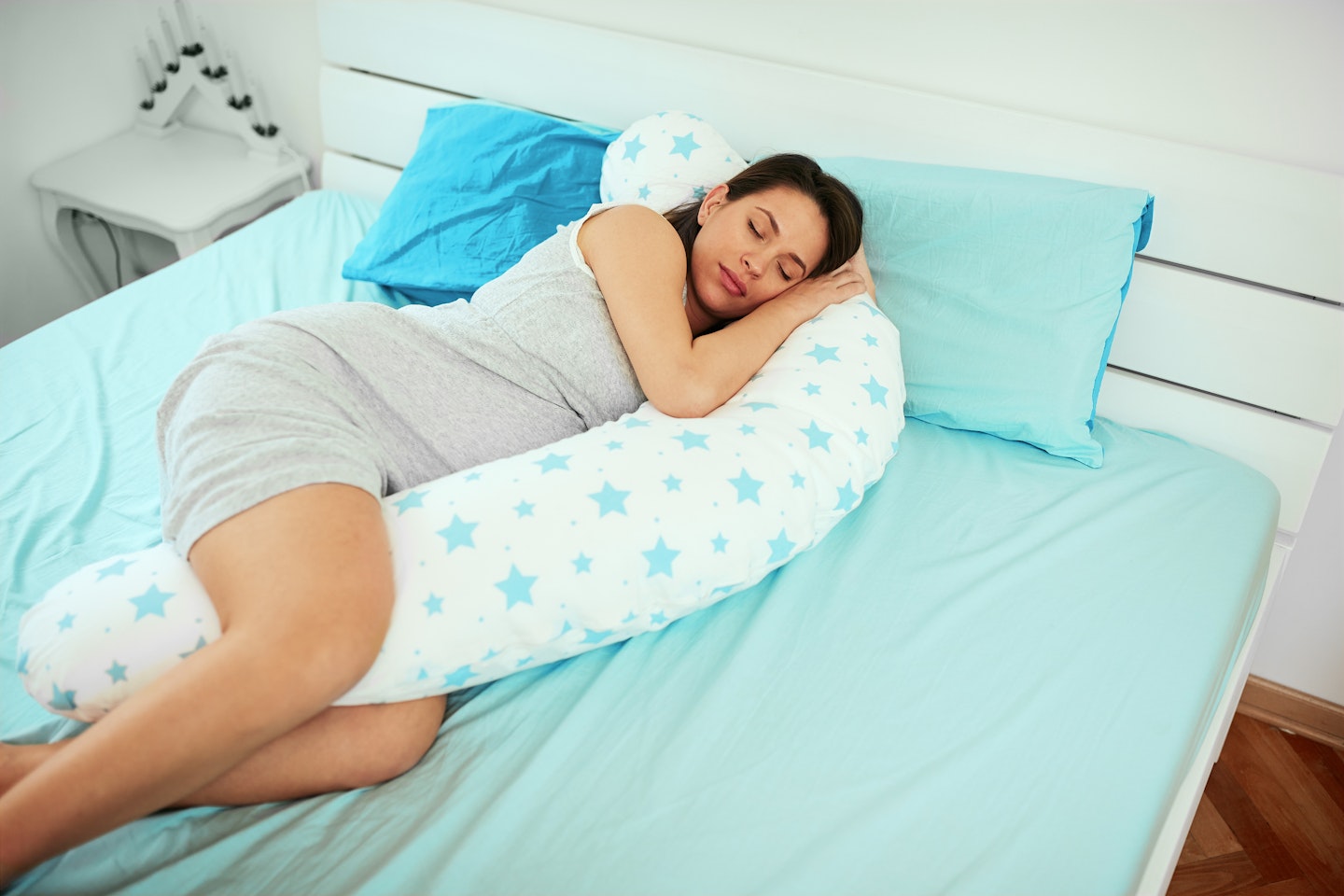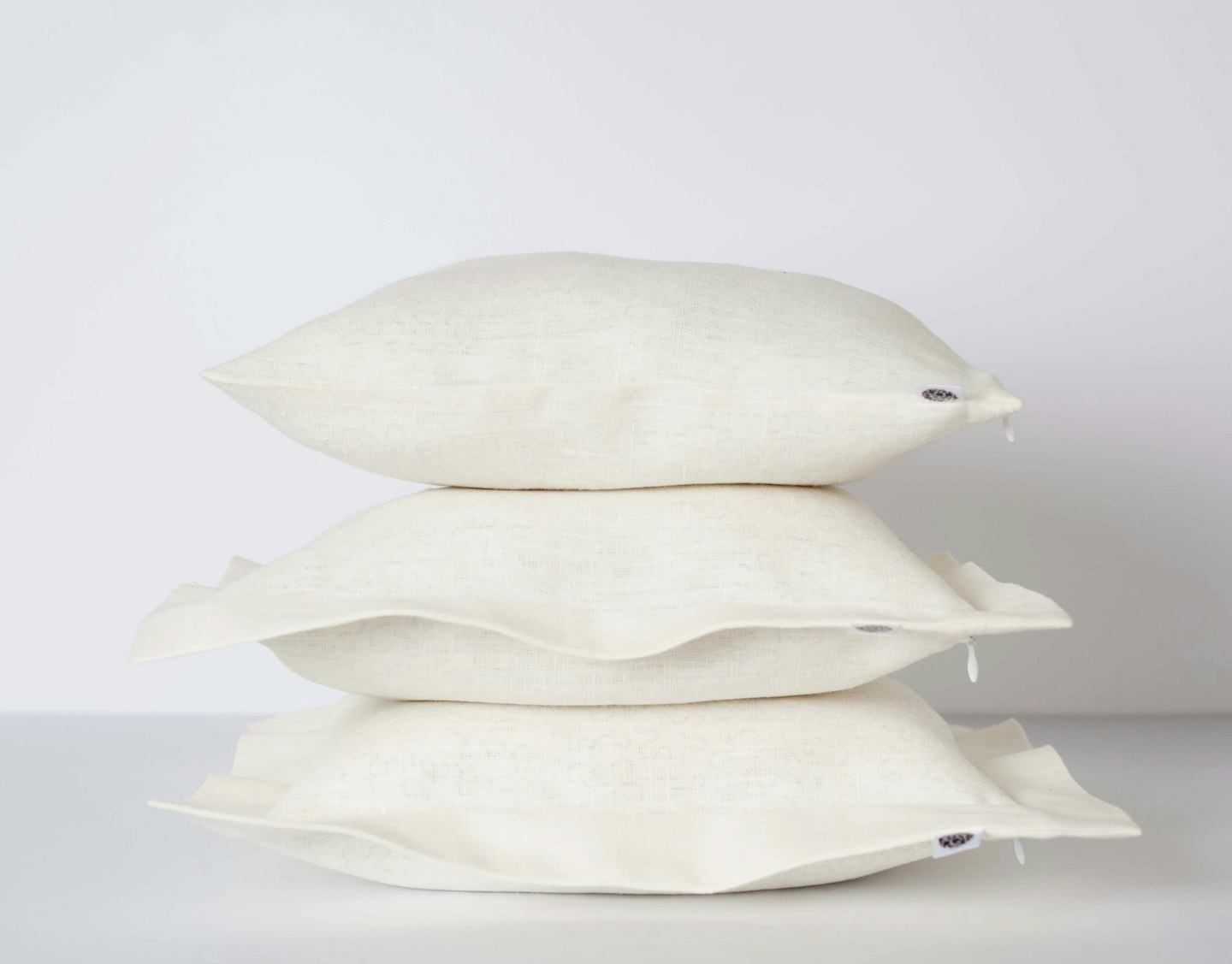You've probably told your partner off for snoring a million times, but did you ever think that he would be telling you off for it?
Trying to get comfortable when sleeping is a tricky task, so when you are finally comfy, you don't want to be woken up to your partner saying you're snoring.
Snoring during pregnancy is very common, so if you're wondering why all of a sudden you sound like a freight train in the middle of the night, here's everything you need to know about snoring during pregnancy and five remedies to stop it!
What makes me snore during pregnancy?

If you've never snored before, but suddenly found yourself competing with your partner on who can snore the loudest, don't worry as snoring while pregnant is more common than you think, with most women starting during the second trimester.
Due to the increase in hormones in your body, it can lead to nasal congestion that increases when you lay down, which then causes you to snore. Another reason you might be snoring is due to pregnancy weight gain. Whether you put a little bit of weight on or a lot through your pregnancy, extra tissue around your head or neck can be a reason for you snoring.
Will my snoring stop when I have my baby?
The good news is, if you started snoring during your pregnancy, you are very likely to stop snoring after your little bundle of joy arrives. If you've now found your snoring is being replaced by your baby snoring, it's worth looking into the causes and remedies.
Remedies to help stop snoring
Help stop snoring
 1 of 5
1 of 51) Sleep on your side
If your partner snores, you've probably heard this one before. Sleeping on your side reduces the compression of your airwaves, making it easier to breathe.
Sleeping on your left side is also good for helping digestion. It's definitely worth a try!
 2 of 5
2 of 52) Watch what foods you eat
This is one that you're probably fed up of hearing, and anyone who says "don't eat that" is probably asked for their arm to be chewed up! You can't help your cravings, right?
However, weight gain is a common factor in snoring, so trying to have a balanced and healthy diet is a good way to help reduce the amount of weight you might gain while pregnant.
 3 of 5
3 of 53) Plump your pillows
Laying flat can reduce the amount of oxgyen getting to your lungs, making you more likely to sleep with your mouth open. Sleeping elevated can help you to breathe properly, and will hep to curb the snoring, so plump your pillows or double them up to help support you while you sleep.
Sleeping slightly elevated is a good way to reduce headaches and migraines, which can be common in pregnancy.
 4 of 5
4 of 54) Get a mist humidifier
Dry air can cause irritation in your nose or throat, and it can also worsen snoring. If you use a mist humidifier at night, it will help add moisture into the air and soothe any nasal congestion or throat irritation.
If you don't have a humidifier, then it might be worth buying one! They're great for when your little ones arrive, to help them breathe easier through cold and flu season.
 5 of 5
5 of 55) Try a nasal strip
Nasal strips are a flexible band that fit above your nostrils. They help to provide instant relief from nasal congestion, which helps to reduce snoring.
Now read:
'Pregnancy sucks!' and 25 other things you're not meant to say when pregnant
17 pregnancy side effects and how long it takes for them to 'go back to normal'
